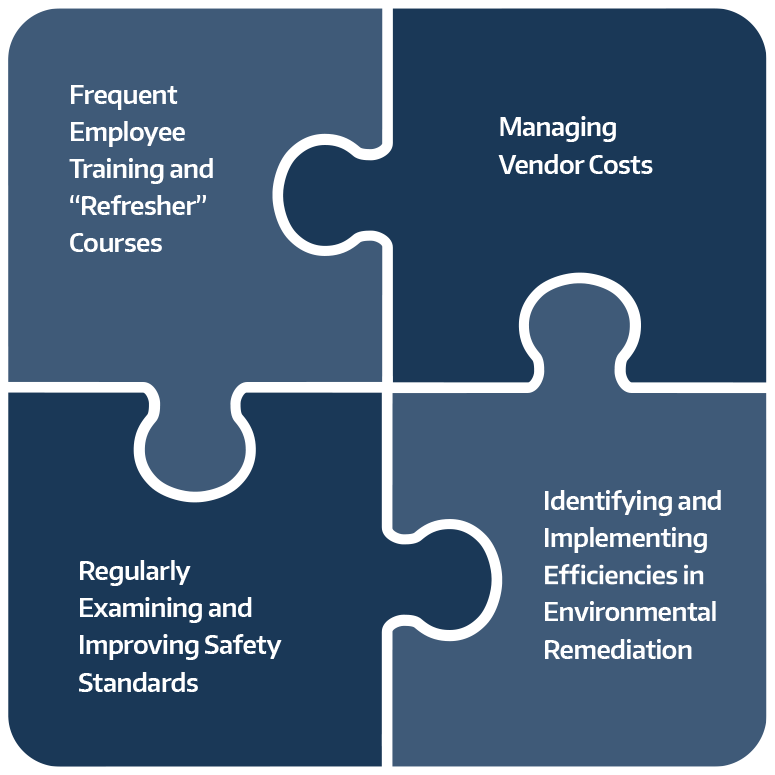Managing Claim Costs: A Multi-Pronged, Collaborative Approach
This article was originally published in the February 2024 issue of Jetstream.
It is no secret that claim costs in the aviation industry have been rising steadily and significantly in the past few years. There are many reasons for this uptick. Some of them include general economic inflation, which has led to considerable increases in consumer prices and interest rates worldwide.

Additionally, supply chain issues have led to repair delays and increased expenses, while new technologies and more expensive materials in next-generation aircraft have contributed to higher repair costs. Furthermore, with respect to liability claims, the judicial environment, particularly in the U.S., has contributed to challenges in the risk of increased verdict amounts and transaction costs involved with defending lawsuits.
Implementing Cost-Control Strategies To Help Our Clients
The challenges our industry faces are real, and no single actor or organization can solve the entirety of the problem. However, as leaders in aviation insurance and with a specialist aviation claims team of more than 50 people worldwide, we are working diligently to reduce (or at least limit) claims costs while ensuring the quality of the work performed remains unmatched.
To achieve those savings, insurance providers must work in partnership with insureds and vendors to capture cost savings where possible without compromising safety or quality of repairs. Across the claims organization at Global, we continually strive to achieve the utmost level of efficiency and effectiveness within all areas of our claims handling strategy.

Targeted Analysis and Training
Everything in the aviation industry centers around a culture of safety. Safety is critical to keeping people secure and unharmed while flying, but a culture of safety and careful attention to it also helps reduce losses.
Continued focus on safety, such as through our SM4 Safety Program, is essential.
In addition, an open and creative approach to onboarding new employees and providing training—not just for pilots, but for all employees—helps minimize the number of claims and may also reduce their severity.
When it makes sense, it is important to work with insureds to review claims histories to identify trends and patterns, specifically for attritional losses. This can be particularly instructive when evaluating trends for operators or airports.
As an example, if there are certain locations or stages of the passenger process that seem to indicate increased risk of a claim, identifying that risk and determining a strategy for ameliorating it is a step in the right direction. Sometimes a process improvement, refresher training, or consultation with a human factors or safety expert can help prevent claims proactively before they occur.
Collaboration can also aid in minimizing risks that may occur within the aviation industry.
We are fortunate to work in a business where everyone is motivated to improve safety standards. The idea of sharing a “lesson learned,” innovative safety measure or risk improvement idea with a business partner is always encouraged and fostered. By having regular conversations with our clients, we can act as the conduit to share thoughts and ideas that allow each to maintain its competitive edge whilst improving standards overall.
Vendor Cost Management
Managing vendor costs is particularly important when trying to reduce claims expenses. While lawyers and experts play a critical role in effectively defending an insured’s product, services and reputation, there are certainly ways to work with lawyers and experts to try to efficiently manage those costs without compromising the quality of the defense. It is important that vendors understand that the costs they incur can translate directly into increases in premium for their own clients.
To that end, it is important for all parties—including the attorneys, insurers and insureds—to determine whether an early resolution to the claim is possible and then develop the strategy to reach this goal. Working with law firms to manage costs involves being clear about the work product expected from case inception to resolution.
While our legal teams are certainly required to perform the work necessary to effectively handle the matter, there are ways to engage with clients to deliver advice in a more concise format. Given these and other factors, it is essential to continue refining and communicating expectations to lawyers and other vendors about how to provide top-shelf service with minimal extra expense and effort.
Global recently hosted its first “legal provider day,” where lawyers we regularly retain gathered to share ideas on best practices. It was encouraging to witness a group of lawyers who regularly compete so universally aligned in wanting to support the aviation sector and be part of a group effort to manage costs.

Reducing Environmental Remediation Expenses
Another important area to examine when discussing efficiencies in claims management is cost-effective environmental cleanup. When incidents happen, they can result in discharges of materials or substances that must be cleaned up and safely disposed of to comply with environmental laws. Those laws can be particularly complex, depending on the jurisdiction in which the incident occurred.
Identifying local vendors nationwide who are committed to cost-effective disposal of wreckage and materials in a safe, economical and legally compliant manner is crucial. That effort can reduce the costs of long-term storage and transportation of materials.
Collaborating on Claims Management Cost Efficiencies
While Global has identified possible cost-saving options, we do not prejudge any of them. Listening to our customers about what is important to them, both before any incident occurs and at the inception of a claim, is our approach.
Understanding the options as well as alignment on procedures can allow for a more efficient repair or dispute resolution process and may even result in cost savings without compromising on safety or quality.
Our clients benefit from partnering with an insurer who can help solve their problems, manage their risk when incidents happen and allow them to focus on their business.
That is why we continue working proactively on effective ways to minimize claim costs.




